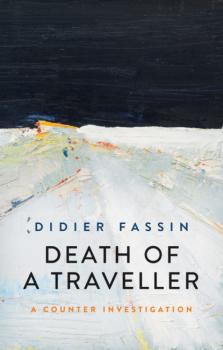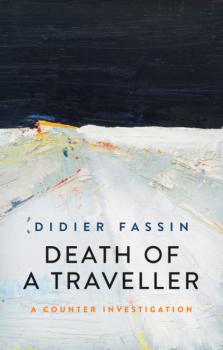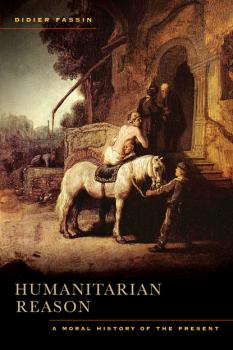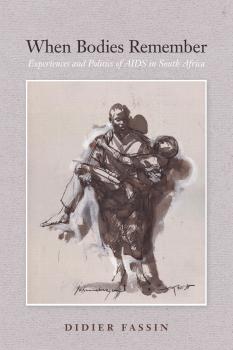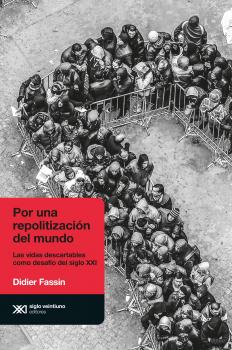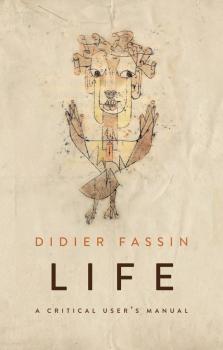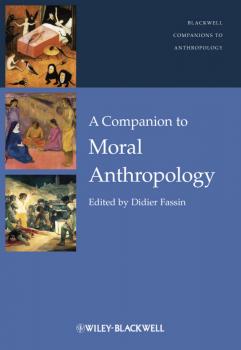Didier Fassin
Список книг автора Didier Fassin¿Cuánto vale una vida?
¿Qué dice de nuestras sociedades el hecho de que en algunos países los muy ricos puedan vivir hasta quince años más que los muy pobres? ¿Por qué algunas vidas parecen valer más que otras? Como han demostrado las ciencias sociales en las últimas décadas, la duración de la vida y el estado de salud con el que las personas la transitan y la terminan no tienen que ver con condiciones «naturales», sino con los efectos de las distintas formas de la desigualdad, que son también expresiones de injusticia. ¿Podemos seguir hablando de longevidad sin incluir en el análisis la calidad y dignidad de las vidas? En este libro, que recoge la conferencia que dio como inauguración de su Cátedra de Salud Pública en el Collège de France, Didier Fassin profundiza en los temas que vienen ocupando su investigación y sus intervenciones públicas en los últimos años: las particulares formas que adquiere la desigualdad cuando se trata de la salud de las personas y, sobre todo, el enorme desafío moral que significa para el mundo contemporáneo reparar esas disparidades. En el tono didáctico que sus lectores reconocen, con mirada y pluma de etnógrafo, Fassin señala las limitaciones de la «expectativa de vida» como forma de medir la duración hipotética de una vida biológica. Las mujeres viven más años que los hombres en promedio, ejemplifica, pero están más expuestas a la violencia, la discriminación y el avasallamiento de sus derechos. «Hablar de desigualdad de las vidas ya no es solo interrogarse sobre las disparidades de su duración, sino considerar las diferencias entre lo que son y lo que los individuos tienen derecho a esperar de ellas», escribe. Con este libro, que incluye también una entrevista especialmente realizada al autor, Siglo XXI se suma al Collège de France para poner al alcance del público hispanohablante las principales lecciones inaugurales y de clausura de la prestigiosa institución francesa, que es otra manera de difundir entre los lectores la producción intelectual más actualizada y relevante.
Death of a Traveller
It is a simple story. A 37-year-old man belonging to the Traveller community is shot dead by a special unit of the French police on the family farm where he was hiding since he failed to return to prison after temporary release. The officers claim self-defense. The relatives, present at the scene, contest that claim. A case is opened, and it concludes with a dismissal that is upheld on appeal. Dismayed by these decisions, the family continues the struggle for truth and justice. Giving each account of the event the same credit, Didier Fassin conducts a counter-investigation, based on the re-examination of all the available details and on the interviews of its protagonists. A critical reflection on the work of police forces, the functioning of the justice system, and the conditions that make such tragedies possible and seldom punished, Death of a Traveller is also an attempt to restore to these marginalized communities what they are usually denied: respectability.
Prison Worlds
The prison is a recent invention, hardly more than two centuries old, yet it has become the universal system of punishment. How can we understand the place that the correctional system occupies in contemporary societies? What are the experiences of those who are incarcerated as well as those who work there? To answer these questions, Didier Fassin conducted a four-year-long study in a French short-stay prison, following inmates from their trial to their release. He shows how the widespread use of imprisonment has reinforced social and racial inequalities and how advances in civil rights clash with the rationales and practices used to maintain security and order. He also analyzes the concerns and compromises of the correctional staff, the hardships and resistance of the inmates, and the ways in which life on the inside intersects with life on the outside. In the end, the carceral condition appears to be irreducible to other forms of penalty both because of the chain of privations it entails and because of the experience of meaninglessness it comprises. Examined through ethnographic lenses, prison worlds are thus both a reflection of society and its mirror. At a time when many countries have begun to realize the impasse of mass incarceration and question the consequences of the punitive turn, this book will provide empirical and theoretical tools to reflect on the meaning of punishment in contemporary societies.
Humanitarian Reason
In the face of the world’s disorders, moral concerns have provided a powerful ground for developing international as well as local policies. Didier Fassin draws on case materials from France, South Africa, Venezuela, and Palestine to explore the meaning of humanitarianism in the contexts of immigration and asylum, disease and poverty, disaster and war. He traces and analyzes recent shifts in moral and political discourse and practices – what he terms «humanitarian reason»– and shows in vivid examples how humanitarianism is confronted by inequality and violence. Deftly illuminating the tensions and contradictions in humanitarian government, he reveals the ambiguities confronting states and organizations as they struggle to deal with the intolerable. His critique of humanitarian reason, respectful of the participants involved but lucid about the stakes they disregard, offers theoretical and empirical foundations for a political and moral anthropology.
Life. A Critical User's Manual
How can we think of life in its dual expression, matter and experience, the living and the lived? Philosophers and, more recently, social scientists have offered multiple answers to this question, often privileging one expression or the other – the biological or the biographical. But is it possible to conceive of them together and thus reconcile naturalist and humanist approaches? Using research conducted on three continents and engaging in critical dialogue with Wittgenstein, Benjamin, and Foucault, Didier Fassin attempts to do so by developing three concepts: forms of life, ethics of life, and politics of life. In the conditions of refugees and asylum seekers, in the light of mortality statistics and death benefits, and via a genealogical and ethnographical inquiry, the moral economy of life reveals troubling tensions in the way contemporary societies treat human beings. Once the pieces of this anthropological composition are assembled, like in Georges Perec’s jigsaw puzzle, an image appears: that of unequal lives.
A Companion to Moral Anthropology
A Companion to Moral Anthropology is the first collective consideration of the anthropological dimensions of morals, morality, and ethics. Original essays by international experts explore the various currents, approaches, and issues in this important new discipline, examining topics such as the ethnography of moralities, the study of moral subjectivities, and the exploration of moral economies. Investigates the central legacies of moral anthropology, the formation of moral facts and values, the context of local moralities, and the frontiers between moralities, politics, humanitarianism Features contributions from pioneers in the field of moral anthropology, as well as international experts in related fields such as moral philosophy, moral psychology, evolutionary biology and neuroethics

